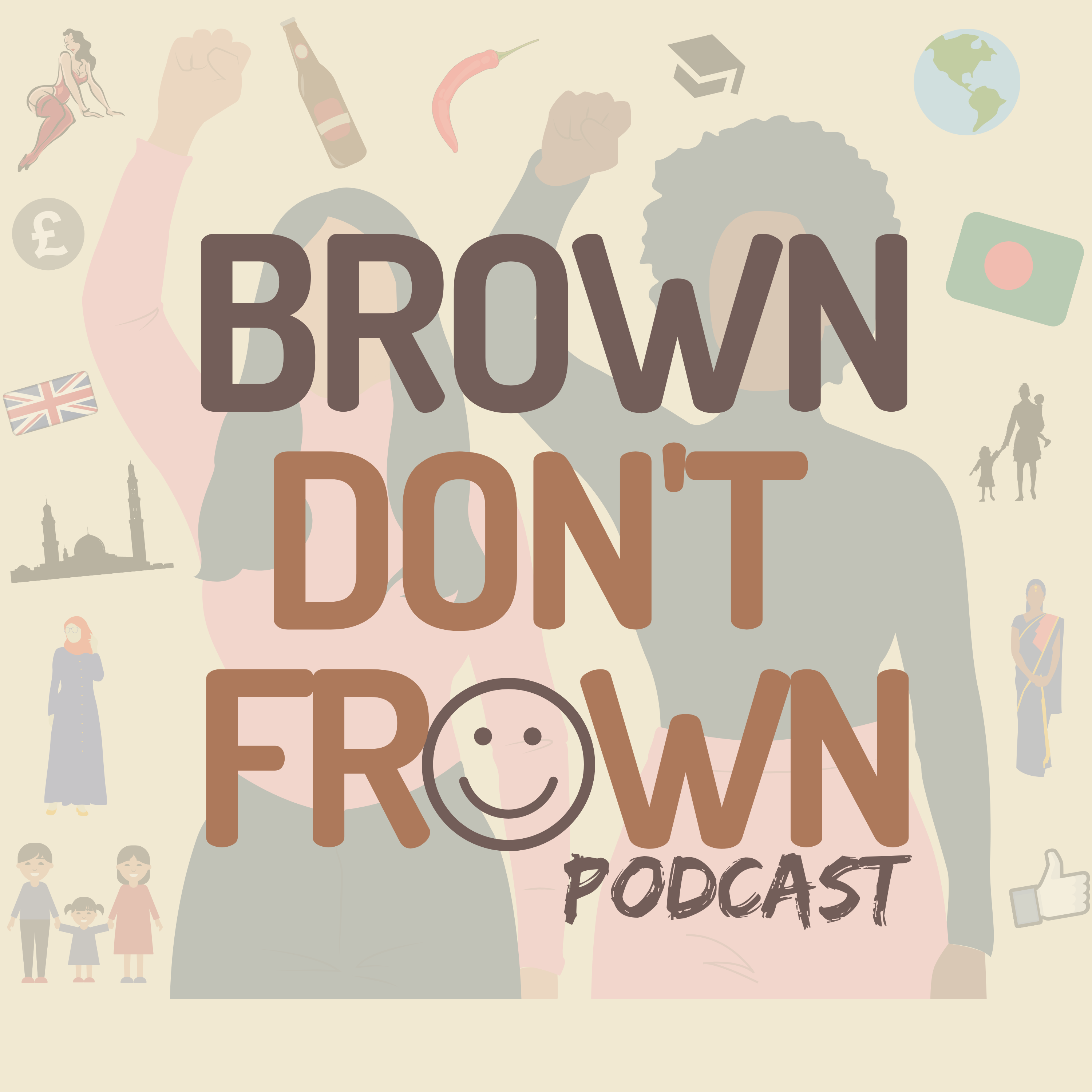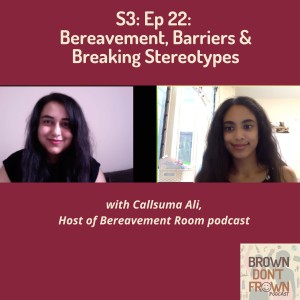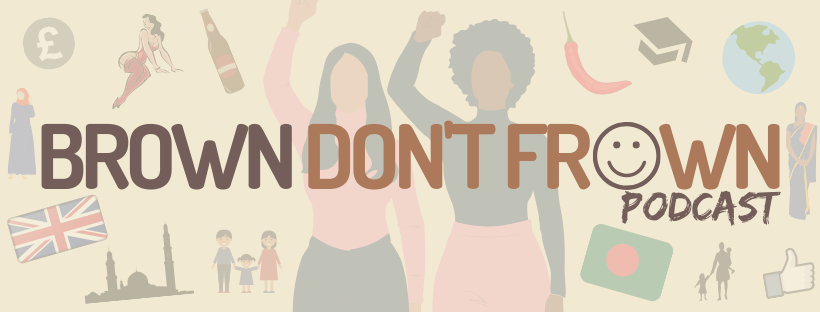
Brown Don't Frown was borne out of a personal journey with womanhood. As a British Bangladeshi, navigating mainstream Feminism often felt exclusionary to me because it didn’t seem to value the experiences or views which shaped my grandmother’s, aunts’, mother’s or friends’ lives. Through this podcast, we seek to build a more inclusive discourse, which breaks down presumptions about different cultures, and shines a positive light on the stories of underrepresented women. Featuring new guest(s) from different walks of life in each episode, Brown Don’t Frown seeks to engage ordinary women and facilitate openness towards entirely new perspectives. It hopes to spark honest and meaningful conversations about intersectional feminist themes in contemporary society with the acknowledgement that our views are shaped by our cultural, racial, religious, social and political experiences. Whether it's discussing society's preconceptions about the Hijab with a British-born Jamaican Muslim woman or examining the impact of gendered expectations on our ability to grieve on our own terms, we hope listeners finish each episode feeling more rounded than they did before. Follow us on: Instagram: https://www.instagram.com/browndontfrownpodcast/ Twitter: https://twitter.com/bdfpodcast?lang=en Facebook: https://www.facebook.com/browndontfrownpodcast LinkedIn: https://www.linkedin.com/company/browndontfrownpodcast
Episodes

Sunday Oct 11, 2020
Season 3: Ep 22 - Bereavement, Barriers & Breaking Stereotypes
Sunday Oct 11, 2020
Sunday Oct 11, 2020
When you think of bereavement, what three words spring to your mind?
I’m joined by Callsuma Ali, host of Bereavement Room podcast. We look at the positives and negatives of how bereavement is addressed within the South Asian, and particularly British Bangladeshi community. Drawing from our own bereavement experiences, we both share our positive sentiments of the sense of togetherness and its symbolism through food. By contrast, we recognise the double standards which often prevent women from attending funerals, coloured by the stereotype that they grieve too hysterically. We examine its historical basis, both from a cultural and religious perspective.
Counselling and psychotherapy are rarely spoken about among ethnic minorities due to the stigma of publicising vulnerability. Given her background in counselling and bereavement support, I ask Callsuma about whether attitudes to needing ‘help’ are shifting.
There are assumptions around South Asian family dynamics, including intergenerational living, with younger family members helping their elderly parents. This can be a barrier to accessing external help, for example a visiting nurse, home care assistance or hospice care. We look at how to make our voices heard so that such misconceptions no longer continue.

No comments yet. Be the first to say something!